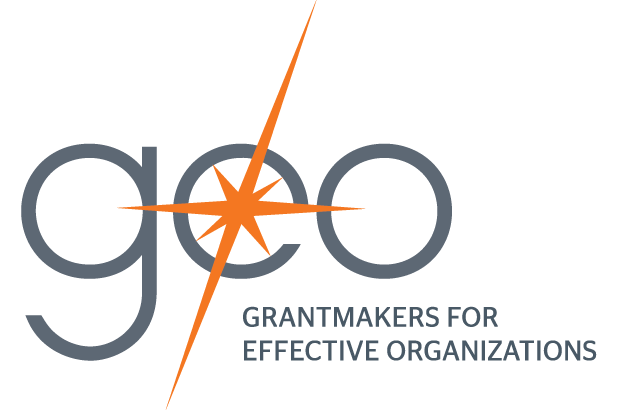During my 5-year tenure at GEO, I’ve had the opportunity to participate in and facilitate several projects including external remote learning events, workshops and meetings to deepen effective grantmaking practice as well as internal work to strengthen GEO’s commitment to racial equity and organizational culture in staff trainings and conversations. However, it was my experience facilitating the 2019 Change Leaders in Philanthropy Fellowship (CLIPF) that has impacted me most to date.
If you are new to GEO, CLIPF is a 10-month peer cohort program where senior leaders in the philanthropic community from across the country can gather to learn about and improve their change management skills at the individual, organizational and systems levels – united by a desire to help each other and themselves grow and achieve more. The program originated from feedback we received from leaders in the field wanting more dedicated spaces to have candid conversations and share resources that build the internal structures needed to ultimately support thriving nonprofit and communities. It was also one of the first programs I worked on when I joined GEO as an assistant back in 2016.
Last year, our 2019 Fellowship was the first iteration of the program I managed from top to bottom. While I had managed other projects outside of CLIPF, our opening retreat in Portland, Oregon illustrated GEO’s larger belief in community-rooted learning that is built on shared vision-making and creating impact in partnerships with others – up, down and sideways within and in between organizations. We spent time reflecting on pivotal moments created maps illustrating major life and career milestones that meaningfully contributed to who they are now. We also spent time reflecting on how those pivotal moments shaped our perspectives and orientation to the world.
The richness of the content and conversations, the vulnerability shared, and the deepening of relationships and knowledge together told a story of a grantmaker community genuinely curious to talk about what change looks like in philanthropy, to lead change from the inside-out and to unpack the internal conditions needed to support thriving nonprofits and communities. Having real, intimate conversations about where we want philanthropy to go is crucial for building a shared vision for what we want to see from our field and beyond. It keeps me going to work with senior leaders of foundations who are thinking about what equity and liberation and transformative practices could look like, who are interested in these things right now – not ideas that are bookmarked for later.
Part of transformative leadership is being in service of thriving communities and I see that connection spark at every cohort I’ve facilitated. I can clearly see how spaces like CLIPF – where insights can ripple through energetically — are a critical step between vision and action.
Many participants shared that this initial opening retreat was so impactful, they decided to bring it back to their teams to continue to get to know their colleagues and their individual motivations for this work. While we’re all working longer and harder than ever considering the world events, I’m thankful to have these bonds and have the knowledge that we played a small part in building them at time when our community needs them the most.
In response to unprecedented times and a global pandemic, GEO has decided to hold all cohort retreats for 2020-21 virtually. Regardless of format, we continue our commitment to helping our members and the broader philanthropic community through these efforts that many are facing now and in the coming years. Many of the issues that past fellows have brought to the group are especially timely during the ongoing crisis surrounding COVID-19 and the increased integration of racial equity into our work. Some examples of past efforts include:
- Diversity, equity and inclusion integration,
- Scaling an organization,
- Becoming a learning organization
- Adopting grantee-centric practices,
- Executing a new strategy,
- Office moves and transitions,
- Knowledge management and technological upgrades; and
- Creating a 501 (c)(4).
I’m excited to facilitate these important discussions in a virtual space and to see what types of candid conversations arise about supporting nonprofit success. In the meantime, I invite you to learn more about the Change Leaders in Philanthropy Fellowship.

